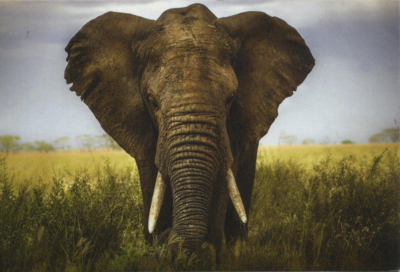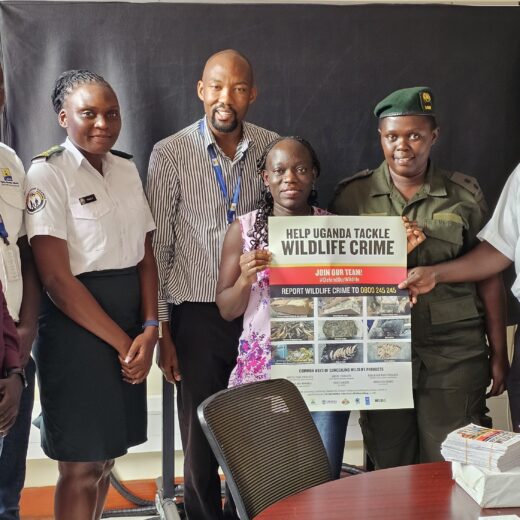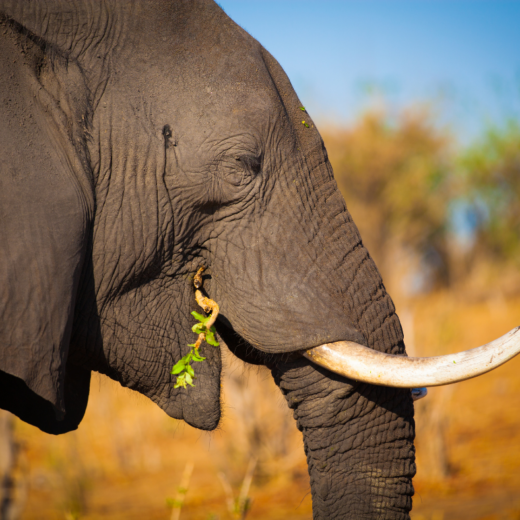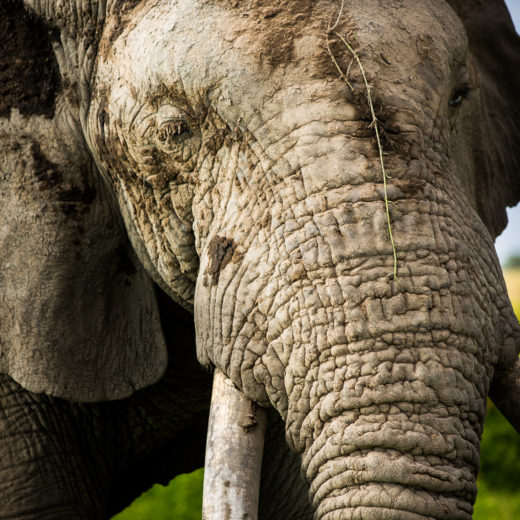
On the heels of the UN CITES wildlife meeting, Japan’s largest online retailer announced it would ban the sale of ivory after confirming that ivory traded on its auction site was “smuggled abroad and detected by foreign customs authorities.”
“WildAid thanks Yahoo! Japan for choosing elephants over profits and playing a critical role to combat illegal wildlife trade online,” said WildAid CEO Peter Knights. “As the single-biggest online platform for elephant ivory sales in Japan, Yahoo! Japan’s decision is another reminder that Japanese people are eager for policies that protect elephants. If the government was to close its domestic ivory market, they would receive great acclaim, both at home and globally.”
Yahoo! Japan, which said the policy would go into effect in November, confirmed multiple reports that ivory was smuggled into China despite international rules banning cross-border trade. Chinese officials have been ramping up their efforts and have seized an increasing number of shipments of ivory from Japan with more than 20 reported so far in 2019.
As traders increasingly look to online marketplaces and social media platforms to sell illegal wildlife goods and exotic pets, Yahoo! Japan’s decision has been welcomed by conservation groups. In May and June last year, Yahoo! Japan sold $380,000 worth of ivory over a four-week period, according to TRAFFIC estimates. Yahoo! Japan joins Rakauten, Amazon, Mercari, and GMO Pepabo. Japanese retail giants such as Aeon Malls and Ito-Yokado had already ordered their tenants to stop selling ivory before Japan hosts the Summer 2020 Olympics.
Despite evidence of ongoing illegal trade that exploits loopholes in the country’s regulations, the Government of Japan has continued to stand behind its domestic ivory trade. Ivory is used for musical instruments, art and hankos – name seals often made from ivory to sign official documents.


This week, CITES parties voted down two proposals to open domestic ivory trade in southern African nations. Other African nations have pleaded with Japan and the European Union to close down their domestic ivory markets, arguing they’re fueling international trafficking and elephant poaching. But Japan didn’t budge, citing a lack of evidence linking its market to poaching and reinforcing that countries should be allowed to regulate their own domestic trade.
Pressure is mounting from both outside and inside Japan to announce the closure of its domestic ivory market before Tokyo hosts the 2020 Summer Olympics. With an estimated 10 million tourists expected to visit Tokyo for the games, there is a high risk that many will use the opportunity, either intentionally or unknowingly, to buy and illegally export ivory souvenirs from these shops. In fact, Japan’s hanko association is reportedly advising members to take full advantage of the Olympics tourist boom, offering ivory hankos as the premium product.
WildAid and Japanese NGO Tears of the African Elephant launched a campaign to end the ivory trade starting by abandoning ivory hanko stamps, which account for 80% of Japan’s ivory consumption. ‘Hankograph’ is an animated story that shows how hankos are made, connecting elephant poaching to the final product. Prominent Japanese personalities and corporate leaders have also joined the anti-ivory campaign, and Japan’s leading airline, All Nippon Airways, is broadcasting WildAid’s PSA on all domestic flights.
Airi Yamawaki, director of the WildAid Japan campaign and founder of Tears of the African Elephant sees the recent Yahoo! Japan news as a reflection of the huge gap between society and the government.
“We have seen major corporations choosing to become ivory free as a way to join hands with the global community ahead of Tokyo 2020, and we are also experiencing firsthand, extremely positive responses and support from the Japanese public,” said Yamawaki. “With the amazing support we are receiving locally, we are hopeful that our government will understand how we want to be seen as the hosting nation of the 2020 Olympic Games, and that they will continue considering steps towards announcing the end of Japan’s domestic ivory trade soon.”
You can help by sharing WildAid’s ivory free campaign ad and using #wildaidjapan #choosenottochooseivory #1YeartoGo
#私は象牙を選ばない
Stay in touch and get the latest WildAid updates.
SIGN UP


